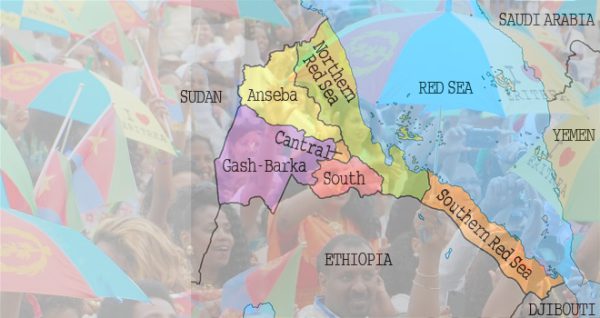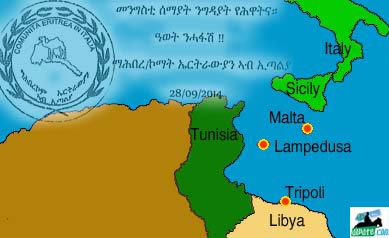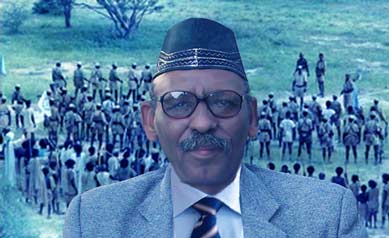Eritrea: A Long Way From Getting Sanctions Lifted

 On December 23, 2009, the United Nations Security Council (UNSC) passed a resolution (S/RES/1907) to impose an arms embargo and targeted sanctions on Eritrea for two reasons: (a) its refusal to comply with prior UNSC resolution (S/RES/1862 of January14, 2009) mandating it to engage in dialogue with Djibouti to resolve its border crisis and withdraw its forces to status quo ante positions and (b) its suspect role in Somalia particularly in training and arming Somali insurgents.
On December 23, 2009, the United Nations Security Council (UNSC) passed a resolution (S/RES/1907) to impose an arms embargo and targeted sanctions on Eritrea for two reasons: (a) its refusal to comply with prior UNSC resolution (S/RES/1862 of January14, 2009) mandating it to engage in dialogue with Djibouti to resolve its border crisis and withdraw its forces to status quo ante positions and (b) its suspect role in Somalia particularly in training and arming Somali insurgents.
Instead of authorizing a new monitoring group, the UNSC adopted Resolution 1916 (2010) on March 19, 2010 and extended the mandate of the existing Somalia Monitoring Group by renaming it Somalia/Eritrea Monitoring Group, adding three experts and authorizing its work through March 19, 2011. The expanded mandate includes oversight of a rare two-way arms embargo on Eritrea and the designation of individuals subjected to a travel ban and asset freeze for violations, as set out in December 2009 by resolution 1907, which demanded that Eritrea cease its support for destabilizing elements in the region.
A month after the Somalia/Eritrea Monitoring Group was authorized, its chairman, Mexican Ambassador Claude Heller paid a visit to Eritrea (April 24, 2010.) The Eritrean president explained that there was no evidence against his government when it comes to his role in Somalia; as for Djibouti, he explained that the border dispute was a “fabrication” instigated by the United States. The Mexican Ambassador stated that his role was to fully explain the impact of the sanctions and to appeal for a full co-operation from the States including Eritrea.
So little has been heard from the SC or the Monitoring Group that some have speculated that the sanctions will wither way, but the facts suggest otherwise. Below are some of the developments since the sanctions were authorized.
DJIBOUTI
On June 6th, under the auspices of Qatar, Djibouti and Eritrea signed an agreement to resolve their border crisis. This was an about-face for the Eritrean government which had dismissed the crisis as “fabrication” and spurned all invitations to resolve its disputes. On June 7th, the UN was briefed about the agreement by Qatar. The provisions of the agreement are as follows:
(1) Eritrea withdraws its troops from the disputed areas;
(2) Qatar forces step into the disputed territories and coordinate the exchange of prisoners of war;
(3) Creates a committee composed of a representative from Eritrea and Djibouti, which is to be chaired by a representative from Qatar. The Committee will hire a company to demarcate the disputed border.
(4) The decision of the company will be “final and binding.”
The UN welcomed the agreement, since it complied with all the terms of Resolution 1862, whose violation was one of the reasons for the imposition of Resolution 1907. But the issue of the “destablizing” presence of Eritrea in Somalia (which is the other half for the imposition of Resolution 1907) remains.
SOMALIA
In March 2010, in its last report before its mandate was expanded to include Eritrea, the Monitoring Group on Somalia had reported that
On the basis of its investigations, it is the opinion of the Monitoring Group that the Government of Eritrea has continued to provide political, diplomatic, financial and — allegedly — military assistance to armed opposition groups in Somalia during the course of the mandate, in violation of resolution 1844 (2008). By late 2009, possibly in response to international pressure, the scale and nature of Eritrean support had either diminished or become less visible, but had not altogether ceased. The Monitoring Group reported that not only was Eritrea providing arms and training to Somali insurgents, but to Ethiopian armed groups, which is prohibited by Resolution 1907. (This may explain why Eritrean media has stopped publicly advertising its support of armed Ethiopian opposition groups.)
In May 2010, the Eritrean government signed the Istanbul Declaration, which “reaffirmed the commitment of the international community to work closely with the transitional federal institutions of Somalia to break the cycle of conflict in that country.” In another about-face, the Eritrean government, which had dismissed Somalia’s TFG as a lackey, was signing a document pledging to support it.
While some of the recent changes the Eritrean government has made have persuaded some member states of the UN, there are enough countries—powerful countries—who have looked at its spotty record and consider its recent moves as superficial. The recent acts of insurgency in formerly stable Puntland, the belief that the responsible party is Mohamed Said Atom—who was named by the Monitoring Group as a recepient of arms suppled by Eritrea—is likely to highten the urgency of requirement for more monitoring.
The UN has not only expanded the mandate of the Monitoring Group on Somalia/Eritrea but staffed it with additional experts who are knowledgeable about money laundering and arms transfers. The UN has also insisted on retaining re-nominating Matt Bryden, Arnaud Laloum and Jörg Roofthooft despite objections from some quarters. There is no more compelling evidence that the UN believes more monitoring is required, and that the sanctions should remain in place than this: there is no expiration date built-in into the sanctions. It will be lifted only when the UNSC believes that Eritrea has complied with Resolution 1907. This means that if any of the veto-wielding nations like the United States (still smarting from Eritrea’s role in Somalia) or France (which has been given key role in seeing that Resolution 1862 is complied with) vote against lifting the sanctions, they will remain in place.




Awate Forum